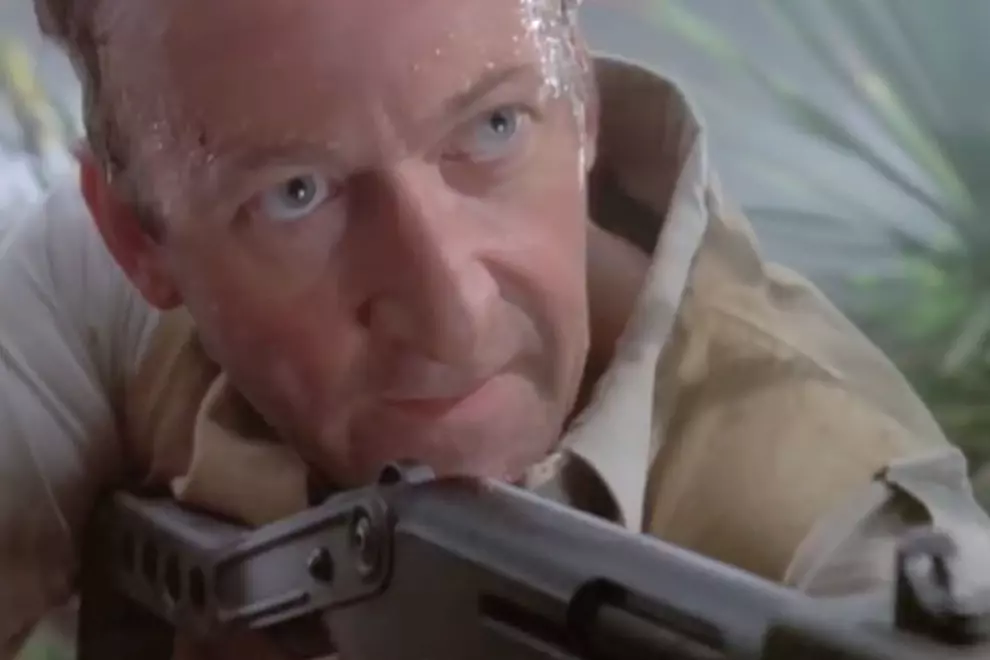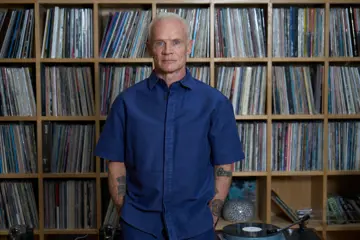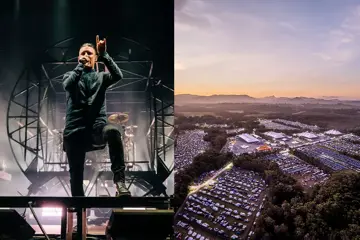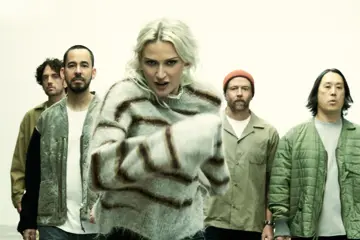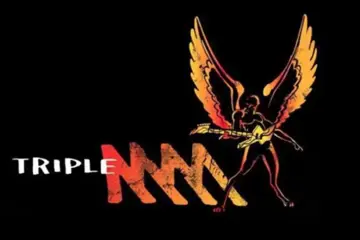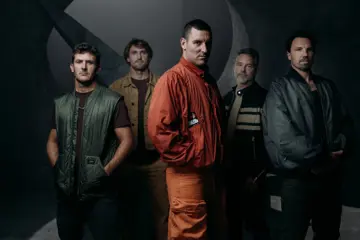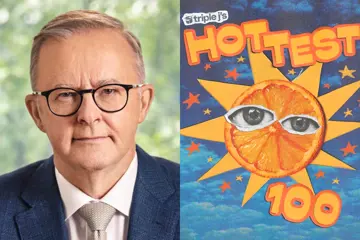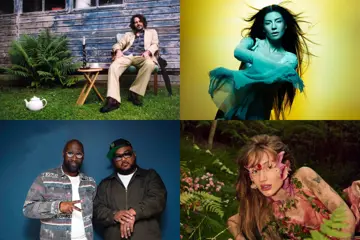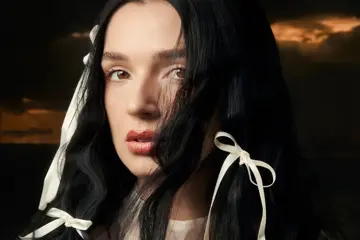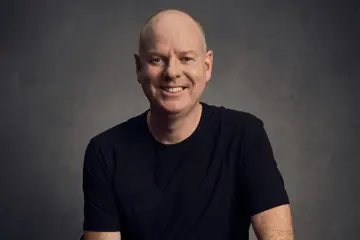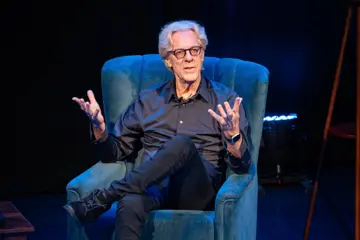If Jurassic World has achieved nothing else — though its box-office returns would make it hard to argue the point — it has at least put "dinosaur park game warden" back at the forefront of the "dream job" pile.
After all, who among us wouldn't, given the opportunity, want to embark on a career where potential duties include "velociraptor bike gang leader" and your job description is just the word "muscles" written over and over? Indeed, Chris Pratt's Jurassic World protagonist Owen seems to have the sort of career every young prehistory enthusiast envisions in their sleep, spending his days chilling with his dino bros and rescuing children from wells or whatever sort of mundane emergencies tend to occur at theme parks (that don't involve the entire menagerie getting loose and eating your visitors).
A mere 22 years ago, however, there couldn't have been a job at such a place that was less enviable than that of the game warden in charge of keeping everyone alive. At Jurassic World's predecessor, the ill-fated Jurassic Park, that job fell to an unfortunate soul called Robert Muldoon — may he rest in peace — and, to be honest, he couldn't have been more different from Pratt's carefree Owen if he tried.
In fact, Muldoon, the poor bastard, is far and away the saddest character to inhabit this entire godforsaken universe. Let's take a trip back to 1993...
Now, it's worth remembering that, when Robert Muldoon (the late Bob Peck) arrived at Isla Nublar to commence his post as a certified monster wrangler, it was still the 1990s and attitudes towards animals in captivity were somewhat simpler back then. A galaxy away from Owen's "be the raptor"-style philosophy of understanding and respecting velociraptors' instincts and needs and their desire to hunt as being tantamount to asserting some measure of control over them — they're still animals, after all — Muldoon was working in a time when nobody understood anything about the freaks of nature they were creating with the assistance of ancient mosquitoes, genderfluid frogs, and a well-intentioned, if inscrutably naive, billionaire.
Don't miss a beat with our FREE daily newsletter
So, imagine that we have Muldoon arriving for his job at the yet-unopened Jurassic Park. Presumably, he has credentials — he's clearly an experienced animal handler (look at his hat; that is a man's man's hat), and is probably comfortable being in untamed environments with nothing to sustain him but some seeds he found and his own unfiltered piss. Basically, let's just take it as read that Muldoon is hardcore.
Then, literally seconds into the film, he has to deal with a death on his watch, after the unloading of a new velociraptor goes terribly wrong and a gatekeeper gets eaten alive and Muldoon is forced to utter the immortal command, "Shoot her! SHOOT HER!" to his crew. That is the kind of behavioural management program we're dealing with here. No worrying about whether maybe something is upsetting the internal balance of the raptors. Just put a bullet in 'em, because we can always make more.
That's a pretty bad situation to have to deal with before the park has even opened. Pre-launch day and you've already got a dead employee and attraction on your conscience? It's a pretty nuts amount of pressure to be operating under when you're responsible for ensuring man-killers aren't strolling freely around the island. We don't even know that it's the first time that somebody has died in the initial lab-to-enclosure transit stage — the process they're applying in the above scene looks pretty involved and beta-tested, suggesting there were probably some unexpected injuries at least during the teething stages of figuring out how to move the dinosaurs out into the park in the first place.
So, Muldoon knows the raptors, especially, are dangerous. He has a lifetime behind him of hunting wild, unpredictable beasts, and an arsenal in front of him of supercharged cattle prods and assault rifles, and a deep, first-hand-witness understanding of the threat the dinosaurs pose. All of this, plus the fact that his very first words upon meeting fellow raptor-fearing buzzkill Dr Alan Grant are "They should all be destroyed"... and he still ends up getting taken out by the very creature he spends 90 minutes warning everyone else about.
I know it's 22 years too late, but why the hell did he pause to make that final quip? Yes, "Clever girl" has become an immortal turn of phrase in the pop-culture lexicon, and we'd be missing important pieces of modern art such as this if Muldoon hadn't bit the dust on-screen, but it, of everything in Jurassic Park, makes the least sense.
Granted, the films made a habit of messing with Michael Crichton's novels and their precedents for character mortality — in the book, old man Hammond doesn't survive the island, getting eaten by a small army of Compsognathus (the little green dudes that feast on one of the mercenaries in The Lost World, echoing Hammond's in-book death), while Ian Malcolm, i.e. the protagonist of the second damn movie, was written as having died in the first book before miraculously recovering for The Lost World.
And, importantly, Muldoon doesn't die.
Sure, he still gets attacked by the velociraptors, but he has the presence of mind to outright kill one of them and fumble his way into an outdoor sewer pipe into which the surviving raptor cannot follow. I'm pretty sure he messes up his leg really badly, but he survives, as you would expect for someone who has a CV like Muldoon's. You know why? Because he wasn't wasting time with James Bond-style one-liners, knowing that, in the time it takes to say the line, he easily could have swivelled 90 degrees and delivered a face full of piping-hot lead to his prehistoric assassin before it had even begun to leap.
Muldoon's death is already pretty unforgivable, but it's made even more so courtesy of the fact that Hammond's useless grandchildren, Tim and Lex, manage to succeed where he failed. Not only that, but they do so using blind luck. Where the hardened, fully matured brain of Muldoon saw imminent death staring it down and thought "Better get in one last joke", Tim and Lex's stupid headlumps manage to use reflections and kitchen utensils to trap one of their would-be hunters and knock the other out cold.
It's not even the only time in the Jurassic Park series where children manage to outshine adults in fighting bloodthirsty murder machines, either — don't forget in The Lost World, like six or seven guys go down in "the long grass", while Malcolm's kid uses the ancient fighting art of GYMNASTICS to, I don't know, kick a raptor through a barn wall because the writers of these films apparently hate Robert Muldoon with a passion.
Muldoon's fate in Jurassic Park takes yet another turn for the extra-depressing when it becomes apparent that none of the people who survive the events of Isla Nublar seem to give a shit what has happened to him. To be fair, that's kind of a theme across the movie — nobody really asks after Dennis Nedry once he becomes Dilophosaurus chow, and Ellie only knows what happened to Samuel L. Jackson because she finds his arm (or his arm finds her) in the power station during the big "fry a kid on an electric fence" climax — but it seems to hurt especially in Muldoon's case.
Muldoon was, after all, super-instrumental in helping those who survived make it out in the first place, particularly Malcolm, who would have been left to die under pieces of broken toilet and chewed-up lawyer had Muldoon not returned and driven him out of there under the stress of having a Tyrannosaurus rex chasing them down. And nobody pours one out for him at any stage after he bites the dust. It's like he doesn't even exist. It's pretty upsetting, but only if you're the sort of person who frames movies in terms of their implications instead of included action. (Side note: Muldoon's death was eventually addressed in The Lost World, where it is explained that his family received $12.6 million in settlement... oh, but the scene was deleted and doesn't appear in the final cut. Fucking go figure.)
OK, so far, Muldoon has suffered not only the indignity of being eaten in the middle of goddamn nowhere despite knowing better, had that death punctuated by a pair of children successfully eluding the same kill-o-saurs a matter of hours later, and then buried in the mud by everyone else's unwillingness to acknowledge that he'd ever even been alive. If you thought it couldn't get worse for poor old Robert Muldoon, you're too optimistic.
Enter: Roland Tembo.
In case you're not as pedantically into keeping tabs on character names from 20-year-old film franchises as I am, Roland Tembo was basically the T-1000 to Robert Muldoon's T-800: Faster, stronger, sassier, balder, better. He swans into The Lost World making quips — well-timed quips — about dinosaur buffets and, importantly, does two things that Muldoon does not in his capacity as resident hat-wearing badass — (a) he survives the film, and (b) he bags himself a male Tyrannosaurus rex as a trophy while he's at it.
Granted, that dinosaur ends up getting loose in San Francisco and eating someone's pet/squashing several humans, but it's the principle of the matter: Tembo came, he saw, he belittled everyone, he uttered some rhetoric about hunting lions in Africa, he broke a baby T-rex's leg, he bagged an adult T-rex, and he lived to unrepentantly break more baby dinosaur legs another day. That is the man Robert Muldoon was selling himself as, and had no hope of actually being, before he ended up in a velociraptor's digestive tract. That is the man Muldoon was in the Jurassic Park novel, when he was a whisky-drinking, snarky hunting veteran who wanted military-grade weapons for the joint and couldn't wait to point out to everyone how much easier it would have been to take down the escaped T. rex if only they had a rocket launcher. And the fact that he actually came to life four years later in an afterthought sequel is a kind of retrospective slap across Muldoon's munched-up face, like the writers only later came to understand the sort of role they should have been creating for Bob Peck to begin with.
And now we have Jurassic World's Owen, who has injected the archetype with a degree of modern GQism and an affinity for extreme sports, ensuring that the grim, sad spectre of Robert Muldoon is well and truly lost in the dust cloud left behind by handsome, sensitive Chris Pratt and his awesome motorbike raptor squad.
Vale, Muldoon: pioneer, sad-sack, cautionary tale.
Jurassic World is in cinemas now.

